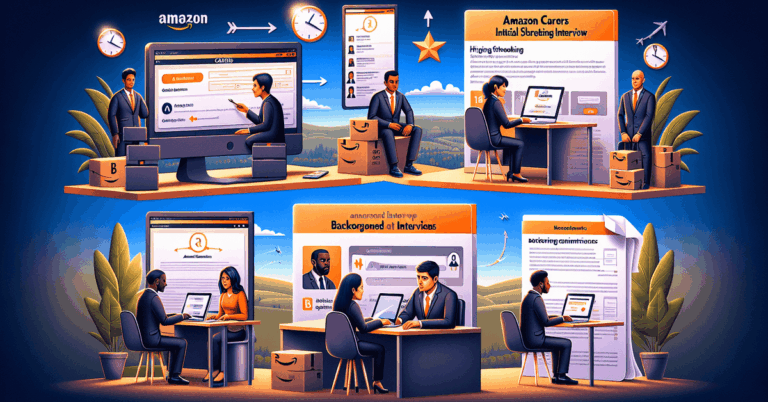Understanding the critical milestones in your career development is essential to achieving long-term success.
By focusing on critical stages, from self-assessment to regular evaluation, you can effectively navigate your career path, ensuring growth and fulfilment.
Here’s what you need to know.
Milestone 1: Self-Assessment
Self-assessment is the critical first step in career development, providing insight into your personal and professional attributes.
Here’s how to effectively assess yourself:
- Identify and evaluate your strengths and weaknesses.
- Clarify your core values and areas of interest.
- Utilize tools such as personality tests and career assessments.
- Reflect on your past experiences and achievements.
- Develop a clear vision of your future career goals.
Tools and Methods for Self-assessment
Effective self-assessment requires the tools and methods to understand your abilities and preferences comprehensively.
Here are some useful options:
- Personality Tests: Tools like the Myers-Briggs Type Indicator (MBTI) or Big Five Personality Traits help identify your personality type and traits.
- Skills Assessment: Online platforms like SkillsYouNeed and CareerOneStop offer tests to evaluate your technical and soft skills.
- Values Clarification Exercises: Worksheets and exercises that help you identify your core values and what drives you.
- Interest Inventories: Tools like the Strong Interest Inventory assess your interests and suggest suitable career paths.
- Feedback from Peers: Collecting input from colleagues, mentors, or supervisors to gain external perspectives on your strengths and areas for improvement.
Milestone 2: Setting Clear Career Goals
Setting SMART goals is crucial in guiding your career development with clear direction and measurable outcomes. Here’s why it matters:
- Specific: Defines what you want to achieve.
- Measurable: Allows you to track your progress.
- Achievable: Ensures goals are realistic and attainable.
- Relevant: Aligns with your overall career objectives.
- Time-bound: Set a deadline to maintain focus and urgency.
Short-term vs. Long-term Goals
Understanding the difference between short-term and long-term goals is essential for strategic career planning.
Each serves a distinct purpose in your overall career development. Here’s how they differ:
- Short-term Goals:
- Focus on immediate achievements within a few months to a year.
- Help build momentum and confidence.
- Often involve acquiring specific skills, completing projects, or gaining relevant experience.
- Serve as stepping stones towards long-term objectives.
- Long-term Goals:
- Aim for significant milestones over several years.
- Provide a broader vision for your career trajectory.
- Involve significant career advancements, such as leadership roles, advanced degrees, or important projects.
- Require sustained effort and strategic planning.
Milestone 3: Skill Development
Skill development is crucial to advancing your career, ensuring you remain competitive and capable in your chosen field. Here’s how to approach it:
- Identify Key Skills: Determine the essential skills needed for your career path, including technical and soft skills.
- Continuous Learning: Stay updated through ongoing education through online courses, workshops, and certifications.
- On-the-Job Training: Gain practical experience by taking on new tasks and responsibilities at work.
- Mentorship: Seek guidance from experienced professionals who can help you develop specific skills and provide feedback.
- Practice and Application: Regularly apply and refine your skills in real-world scenarios to build proficiency.
Strategies for Continuous Learning and Improvement
Continuous learning and improvement are essential to staying competitive and advancing your career. Here are some effective strategies:
- Enrol in Online Courses: Platforms like Coursera and LinkedIn Learning offer valuable resources for skill development.
- Attend Workshops and Seminars: Participate in industry-specific events to stay updated on current trends.
- Join Professional Organizations: Access resources and networking opportunities through relevant associations.
- Read Industry Publications: Stay informed by regularly reading books, journals, and articles in your field.
- Seek Feedback: Regularly ask for feedback from peers and mentors to identify areas for growth.
Milestone 4: Networking and Building Professional Relationships
Networking is crucial for career development. It opens doors to new opportunities and provides valuable insights from industry peers.
Building strong professional relationships can significantly enhance your career growth and resource access.
Tips for Effective Networking and Maintaining Relationships
Effective networking is more than just making connections; it’s about building and maintaining strong professional relationships.
Here are some tips to help you network effectively:
- Be Genuine: Approach networking with authenticity and a genuine interest in others.
- Follow-Up: After meeting someone, send a follow-up message to reinforce the connection.
- Offer Value: Share helpful information or resources that could benefit your contacts.
- Stay in Touch: Regularly check in with your network, even when you don’t need anything.
- Attend Industry Events: Attend conferences, seminars, and workshops to meet new people and expand your network.
Milestone 5: Gaining Relevant Experience
Internships, volunteer work, and projects are crucial for gaining practical experience and demonstrating your skills in real-world scenarios.
They provide opportunities to apply your knowledge, build your resume, and make valuable industry connections.
These activities can set you apart by showcasing your initiative and commitment to your career growth.
How to Leverage Experience to Advance Your Career
Leveraging your experience effectively can significantly boost your career progression.
Here’s how you can turn your past experiences into career advancement opportunities:
- Highlight Relevant Skills: Emphasize the skills you’ve developed in previous roles that apply to your career goals.
- Showcase Achievements: Communicate your accomplishments and their impact on your previous employers or projects.
- Build a Strong Resume: Tailor your resume to reflect the experiences that align most with your target job.
- Use Experience in Networking: Share your experiences during networking opportunities to demonstrate your expertise and value.
- Pursue Advanced Roles: Use your accumulated experience as a foundation to apply for higher-level positions or leadership roles.
Milestone 6: Evaluation and Adjustment
Regular evaluation and adjustment of your career path are essential for staying aligned with your goals and adapting to changes.
Here’s how to effectively manage this process:
- Review Progress: Regularly assess your achievements against your career goals to ensure you’re on track.
- Identify Gaps: Look for areas where your skills or experiences may need improvement to reach your objectives.
- Adjust Goals: Modify your career goals to reflect changes in your interests, industry trends, or personal circumstances.
- Seek Feedback: Continuously gather input from mentors, peers, or supervisors to gain different perspectives on your progress.
- Stay Flexible: Be open to adapting your career strategy in response to new opportunities or challenges.
Concluding Insights: Mastering the Six Essential Milestones for Career Success
Grasping and implementing these six critical milestones in your career development will guide you toward long-term success.
Each step plays a crucial role in your growth and professional advancement.
Take control of your career—start applying these milestones today and watch your progress unfold.












